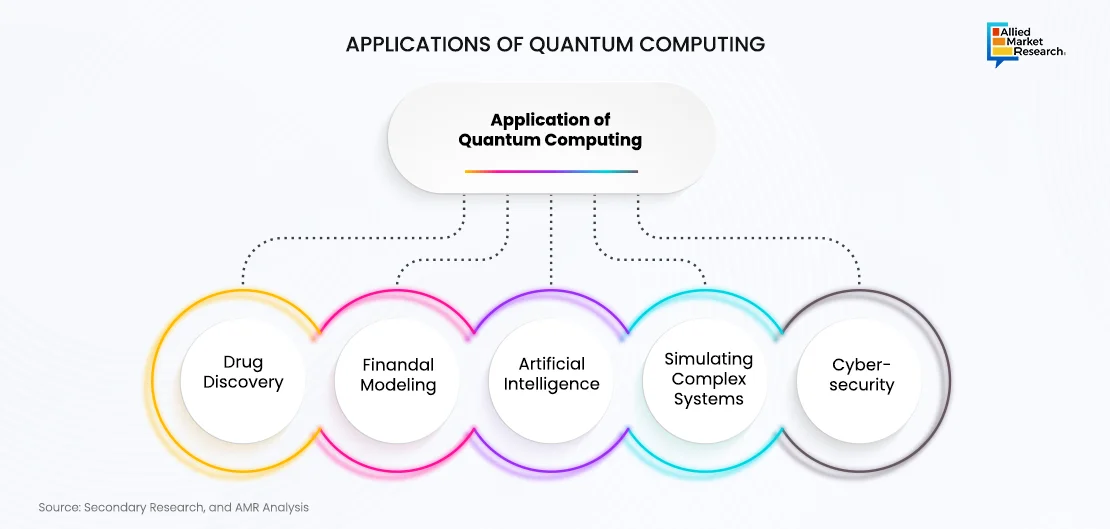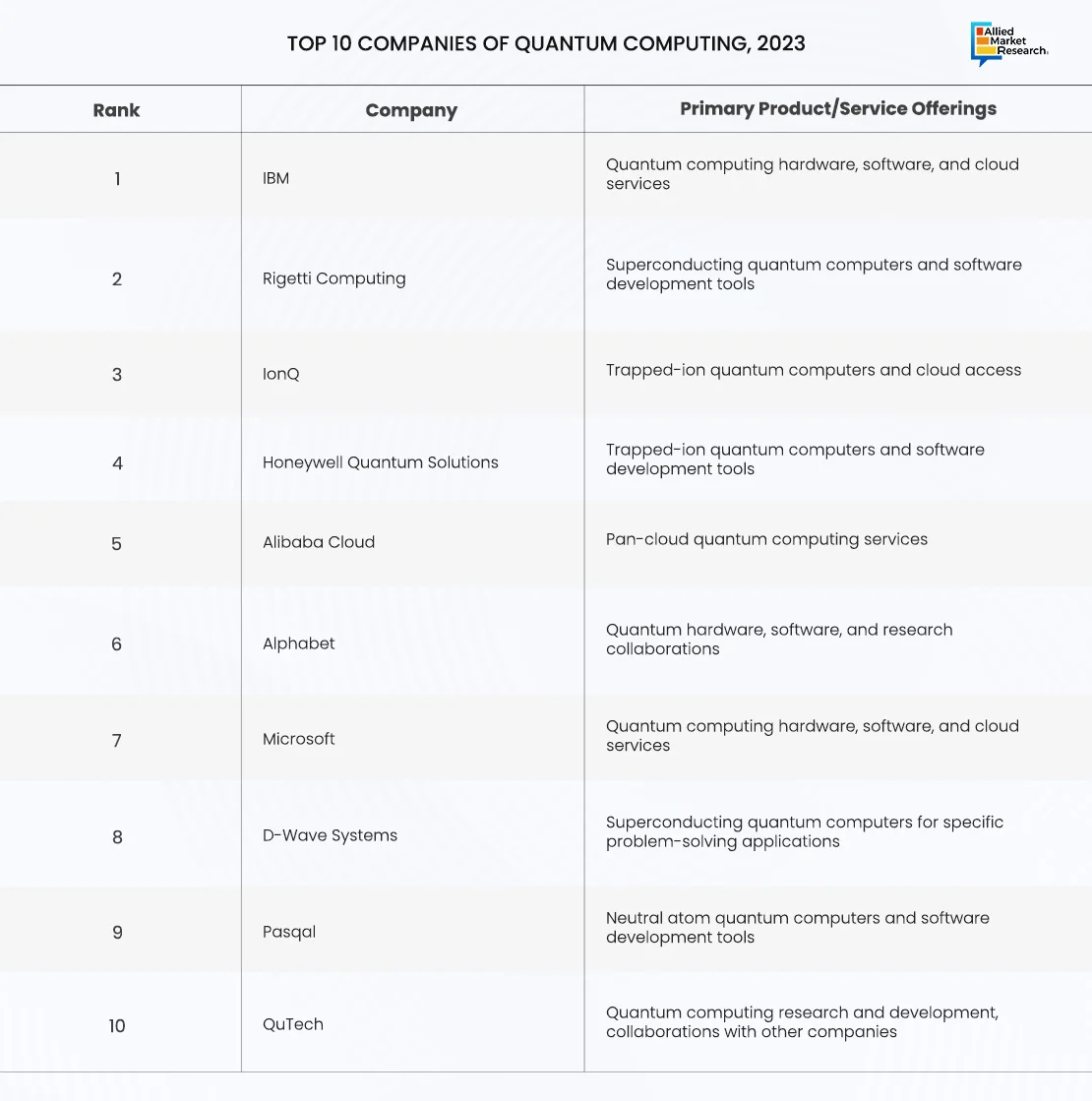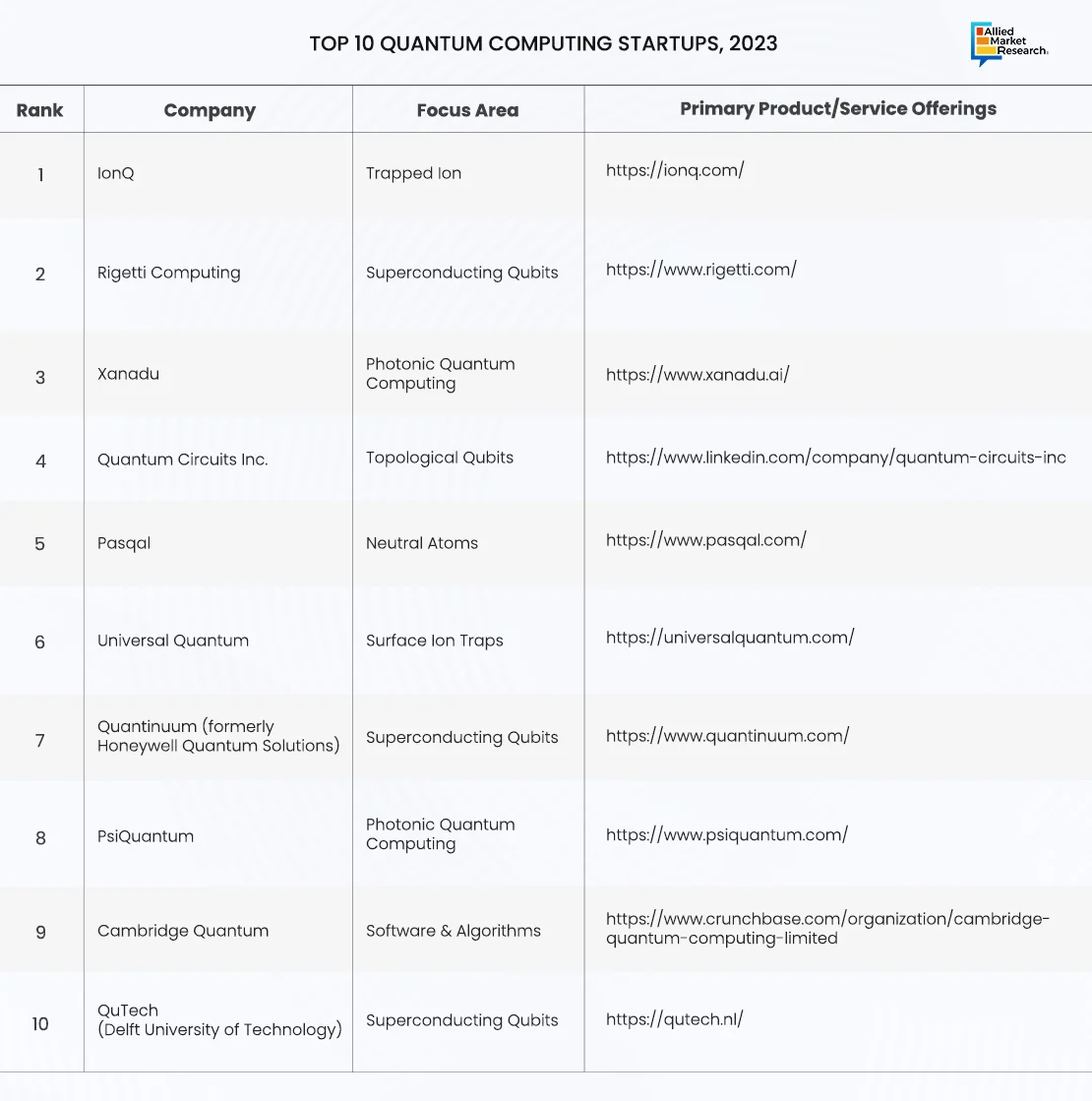Table Of Contents
- Advantages of Quantum Computing
- 1. Tackling previously intractable problems
- 2. Unlocking new possibilities in various industries
- 3. Scientific and technological advancements
- 4. Economic and societal impact
- Key Players Operating in the Market
- Startups Challenging Industry Giants
- Industries to Witness the Impact of Quantum Computing
- The Future of Quantum Computing

Sonia Mutreja

Pooja Parvatkar
Quantum Computing: A Revolution in Physics of Computation

Quantum computing has emerged as one of the most transformative technological advancements of the 21st century. It is a type of computing that utilizes the principles of quantum mechanics to perform complex mathematical calculations. Unlike traditional computers that rely on bits (0 or 1), quantum computers use qubits, which can exist in multiple states simultaneously, and allows quantum computers to tackle programming problems that are impossible for even the most powerful classical computers.
Advantages of Quantum Computing
- Speed: Quantum computers can perform certain calculations much faster than classical computers, making them well-suited for tasks that involve a large amount of data or complex mathematical calculations.
- Parallelism: This technology allows for the parallel processing of information, which means that multiple computations can be performed simultaneously.
- Cryptography: This technology has the potential to break many encryption methods that are currently used to secure data. However, it also has the potential to develop new and secure encryption methods, which could be more resistant to attacks by hackers.
- Chemistry: This technology can simulate the behavior of molecules at a level of detail that is not possible with classical computing, leading to new discoveries in drug design, materials science, and other areas.
Quantum computing holds immense significance across various fields due to its unique capabilities.

1. Tackling previously intractable problems
Quantum computers can handle problems that are exponentially difficult, if not impossible, for even the most powerful classical computers. This opens doors to different revolutionary breakthroughs:
- Drug Discovery: Simulating complex molecular interactions to design new lifesaving drugs and materials with specific properties.
- Materials Science: Discovering new materials with desired characteristics like superconductivity or ultra-lightweight yet high-strength alloys.
- Financial Modeling: Optimizing complex financial portfolios, managing risks, and making more informed investment decisions.
- Cryptography: Breaking existing encryption methods, which could have significant implications for cybersecurity, and developing new, unbreakable methods for secure communication.
2. Unlocking new possibilities in various industries
Quantum computing has the potential to revolutionize various sectors:
- Artificial Intelligence: By solving complex optimization problems, quantum computers could significantly enhance machine learning algorithms and lead to the development of more powerful AI systems.
- Logistics and optimization: Optimizing complex logistics and transportation systems, leading to efficient resource allocation and reduced costs.
- Chemical Engineering: Designing more efficient and sustainable chemical processes, contributing to a greener future.
3. Scientific and technological advancements
Quantum computing can accelerate scientific research:
- Simulating complex systems: Accurately simulating natural phenomena like weather patterns or the behavior of subatomic particles, leading to deeper scientific understanding.
- Materials design: Discovering innovative materials with unique properties, propelling advancements in various technologies like batteries, solar cells, and semiconductors.
- Breakthroughs in fundamental science: This technology could contribute to groundbreaking discoveries in physics, chemistry, and other fundamental sciences.
4. Economic and societal impact
The potential applications of quantum computing could have significant economic and societal impacts:
- Creation of new industries and jobs: The development and deployment of quantum technologies could create entirely new industries and job opportunities.
- Enhanced healthcare and drug discovery: Faster development of new drugs and more effective treatments could improve global health outcomes.
- Sustainable development: Quantum computing could pave the way for greener technologies and more efficient resource utilization, contributing to a more sustainable future.
Key Players Operating in the Market
Key players operating in the global quantum computing industry include Intel Corporation, Rigetti & Co, Atos SE, Cambridge Quantum Computing Ltd., D-Wave Systems Inc., IBM Corporation, QRA Corp, QC Ware Corp, Google, Qxbranch Inc., And Others. These companies have adopted several strategies such as product launches, partnerships, collaborations, mergers & acquisitions, and joint ventures to strengthen their foothold in the global market.
Startups Challenging Industry Giants
Quantum computing has a vibrant and expanding startup environment, and it has the potential to alter how we address complicated problems in finance, materials science, cryptography, and drug development. According to AMR research, about 1000 enterprises are active in quantum technology, either directly or through a single segment of the supply chain. These can include organizations that provide full-stack solutions, hardware items, software expertise, and even cable, cryogenic, and advice services.

For instance, in February 2024, Xanadu, a world leader in photonic quantum computing, received a repayable contribution from the Government of Canada, through the Federal Economic Development Agency for Southern Ontario (FedDev Ontario), to help companies advance and commercialize their quantum products. Through this funding, the Regional Quantum Initiative (RQI) is expected to accelerate the development of PennyLane, Xanadu's open-source, cloud-based software framework for quantum machine learning, quantum chemistry, and quantum computing.

Industries to Witness the Impact of Quantum Computing
According to the report on quantum computing, published in April 2023, chemicals, life science, automotive, and financial services are expected to witness the impact of development of quantum computing. In addition, the report also mentions that finance and life science sectors are anticipated to have the highest value in terms of revenue over the long term.
The Future of Quantum Computing
The significance of quantum computing spans diverse fields, enabling the resolution of previously insurmountable problems in drug discovery, materials science, finance, and cryptography. Its transformative impact extends to industries such as artificial intelligence, logistics, and chemical engineering. Scientifically, it accelerates research, simulating complex systems and driving breakthroughs in materials design and fundamental sciences. The economic and societal ramifications are profound, creating new industries, generating jobs, improving healthcare, and fostering sustainable development. Thus, quantum computing promises a paradigm shift, reshaping industries, advancing scientific frontiers, and contributing to a transformative global future. By embracing these principles and staying ahead of technological advancements, firms operating in the market can navigate challenges and seize opportunities in the dynamic ICT industry. AMR can help businesses seize opportunities and monetize them to the best of their ability. For further insights, get in touch with AMR analysts.

